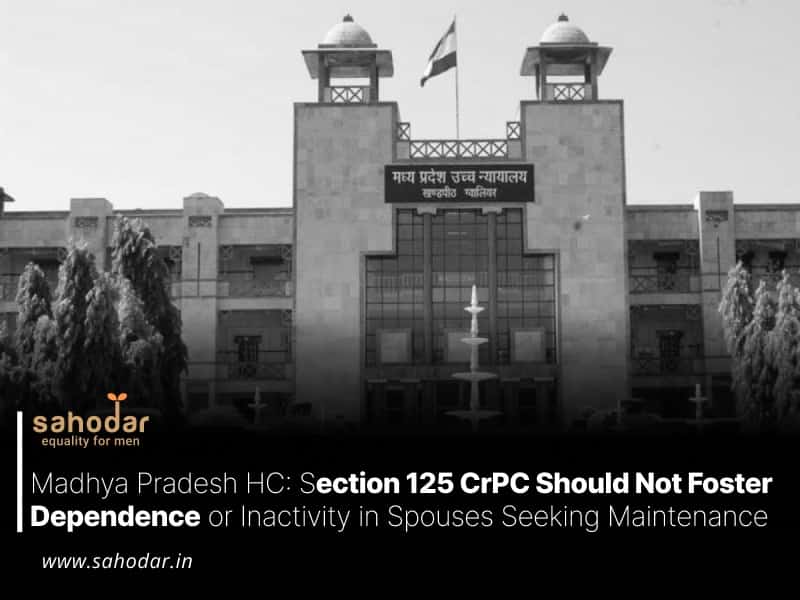The Madhya Pradesh High Court has highlighted that the maintenance provisions under Section 125 of the CrPC are not designed to establish a “dependent class” of individuals relying on financial support from their spouses.
In this case, the petitioner contended that his wife, who holds an M.Com. degree, is capable of supporting herself, having previously worked in the film industry and currently running a dance class.
A Bench of Justice Prem Narayan Singh said, “Nevertheless, Section 125 of Cr.P.C has not been constituted to create an army of idle or inactive people waiting for maintenance to be awarded from the income of the other spouse. It is nowhere manifested that able and well qualified lady has to be always dependent upon her spouse for her maintenance.”
The Court recognized that although educational qualifications alone do not disqualify a wife from receiving maintenance, a spouse’s ability to obtain employment should also be considered. The Court noted, “It is also established as admitted fact that she is also well qualified lady. As per evidence available on record, it can be assumed that respondent No. 1 /wife can earn some income for her livelihood even after being supported from her husband.”
The Court explained that while the respondent had the potential to earn an income based on her qualifications and previous employment, it was important to evaluate her current employment status. As a result, the Court deemed the initial maintenance amount of ₹25,000 per month to be excessive and reduced it to ₹20,000 per month, taking into account her ability to generate some income. Additionally, the Court upheld a separate maintenance award of ₹15,000 per month for the couple’s daughter until she reaches adulthood.
The husband, who filed a revision petition under Section 19(4) of the Family Courts Act, argued that the maintenance order imposed a heavy financial strain on him, as he was also responsible for supporting his father and brother.
The Court noted that the petitioner, a senior manager at HDFC Bank, had the financial capacity to provide for his family. During cross-examination, he admitted to owning several assets, including a residence in Mumbai and a significant fixed deposit.

